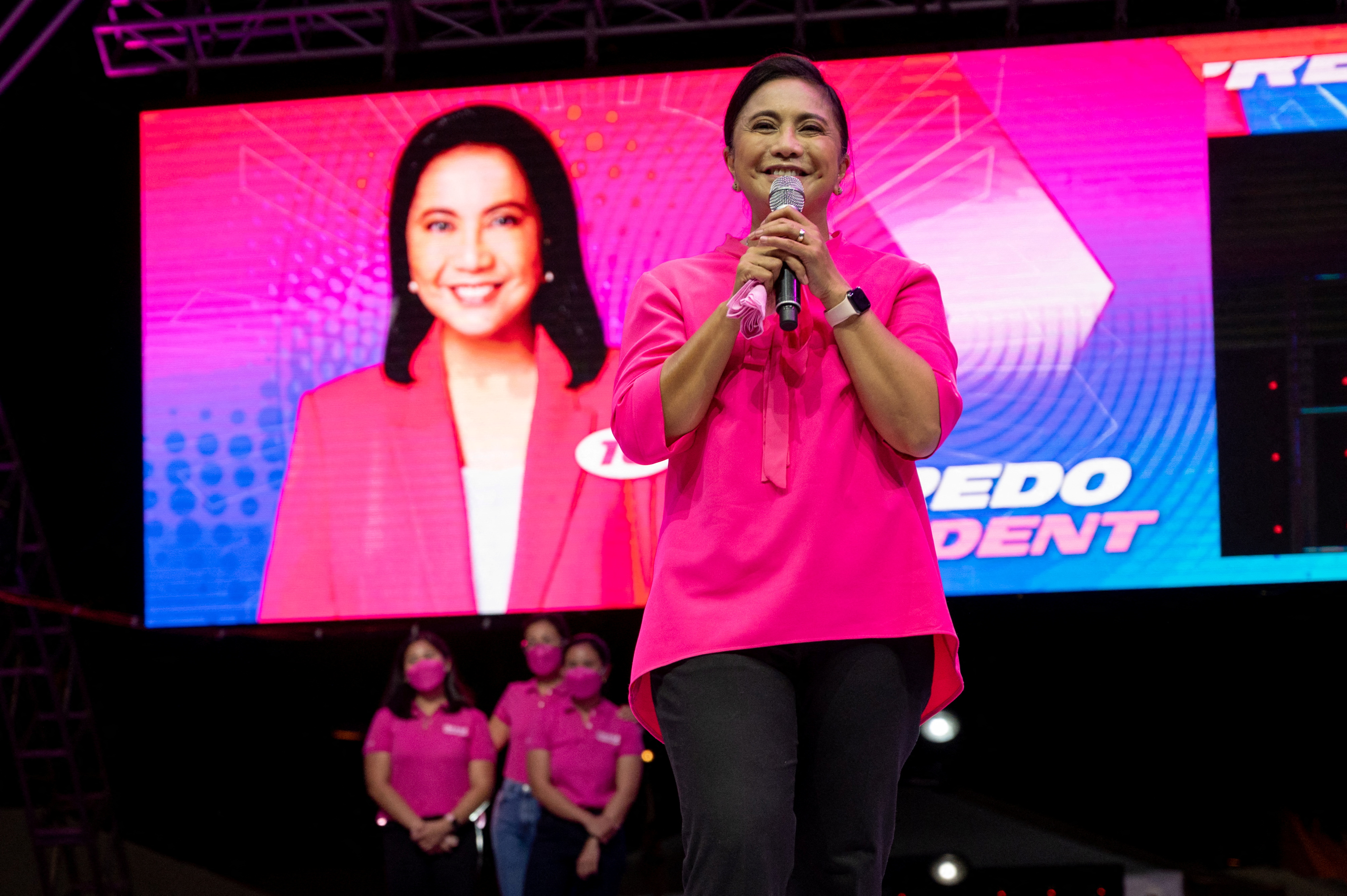Massive turnout in Philippines election reflects ferocious fight between Marcos Jr, Robredo
Sign up now: Get insights on Asia's fast-moving developments
Follow topic:
Mr Marcos Jr represents the stunning return to power of a family that court records and historical accounts hold responsible for mass killings and institutionalised kleptocracy during the 20-year reign of his father that ended in 1986, when a military-backed civilian revolt forced the Marcoses to flee the Philippines.
He has also styled himself as the "continuity candidate", one who would pursue Mr Rodrigo Duterte's policies, including his bloody drug war and rapprochement with China.
Ms Robredo, on the other hand, is heir to the 1986 pro-democracy movement that ousted Marcos Sr.
She has been pushing back against the Marcoses' narrative that the Marcos years were marked by peace and prosperity, and that the 1986 revolt was nothing more than a coup orchestrated by a powerful minority.
Ms Robredo has also said that she will roll back many of Mr Duterte's actions.

These political differences have driven a wedge among families and friends.
Mr Benjamin Esguerra, 74, a pensioner, said he voted for Ms Robredo “because of all the candidates, she’s the one who is most well-known for her track record and her achievements”.
“This country needs someone who is honest, has integrity, morality and capability,” he said.
But he said his wife, who is a member of the influential Iglesia ni Cristo (Church of Christ), likely voted for Mr Marcos Jr.

People cast their ballots inside a Catholic chapel used as a voting centre in Quezon City, Manila, on May 9, 2022.
PHOTO: EPA-EFE
Mr Vic Carpio, 48, who owns a small fleet of ride-sharing cars, said he found himself in the minority in his neighbourhood.
“My neighbours all had these tarps for Leni. But I’m voting for (Marcos Jr) because I think he’s sincere in wanting to turn things around, despite what they’re saying about him and his past,” he said.
Even those who were too old to walk on their own and the infirm – those most vulnerable to the coronavirus still spreading through the population – found ways to vote.
“It’s been difficult, but it’s important that I vote,” said Mr Augusto Fabello, 64, a retiree.
Before noon, the top candidates had already cast their ballots, though they, too, had to suffer through the snafus that marred the early hours of Polling Day.
Mr Marcos Jr was first to vote, arriving at his precinct at around 8am and being done with it in minutes.
Ms Robredo showed up to vote just before noon, held up for two hours by the winding queue and slow process at her polling place.
“We have lawyers on standby. We have to report and document everything we’re seeing outside of the norm,” Ms Robredo told reporters when asked about the hours-long wait, faulty voting machines and questionable ballots.
She added: “The last thing we want is to see the integrity of our election crumble because this is what creates disorder.”
In the race to be vice-president, Ms Sara Duterte-Carpio, 46, Mr Marcos Jr's running mate and outgoing President Duterte's daughter, is forecast to likewise win by a landslide with a lead of more than 40 percentage points over the second-placer, Senate President Tito Sotto, 73.

Voting is set to close at 7pm local time, with counting set to start after that.



